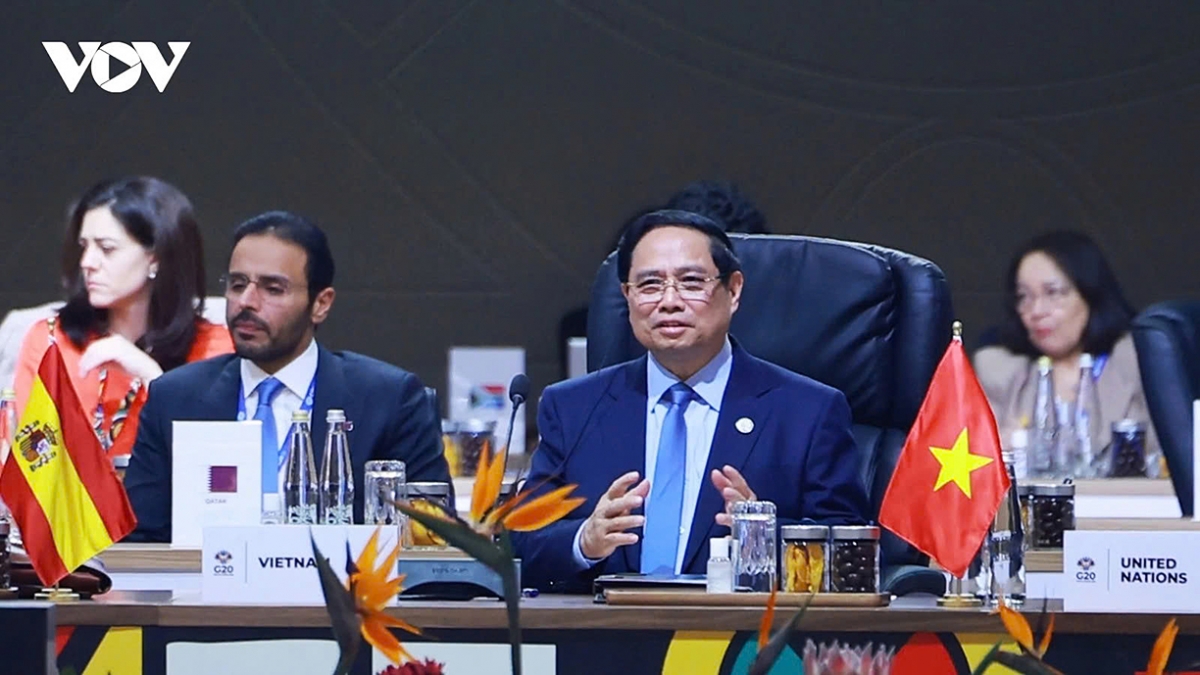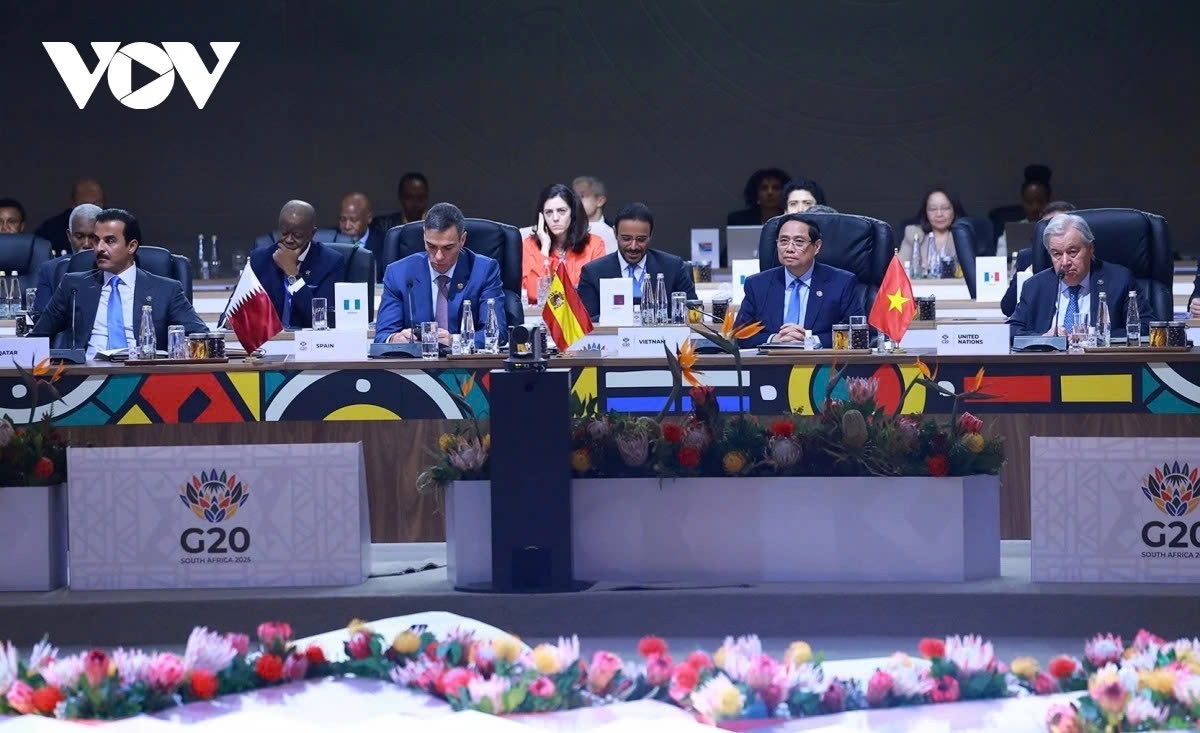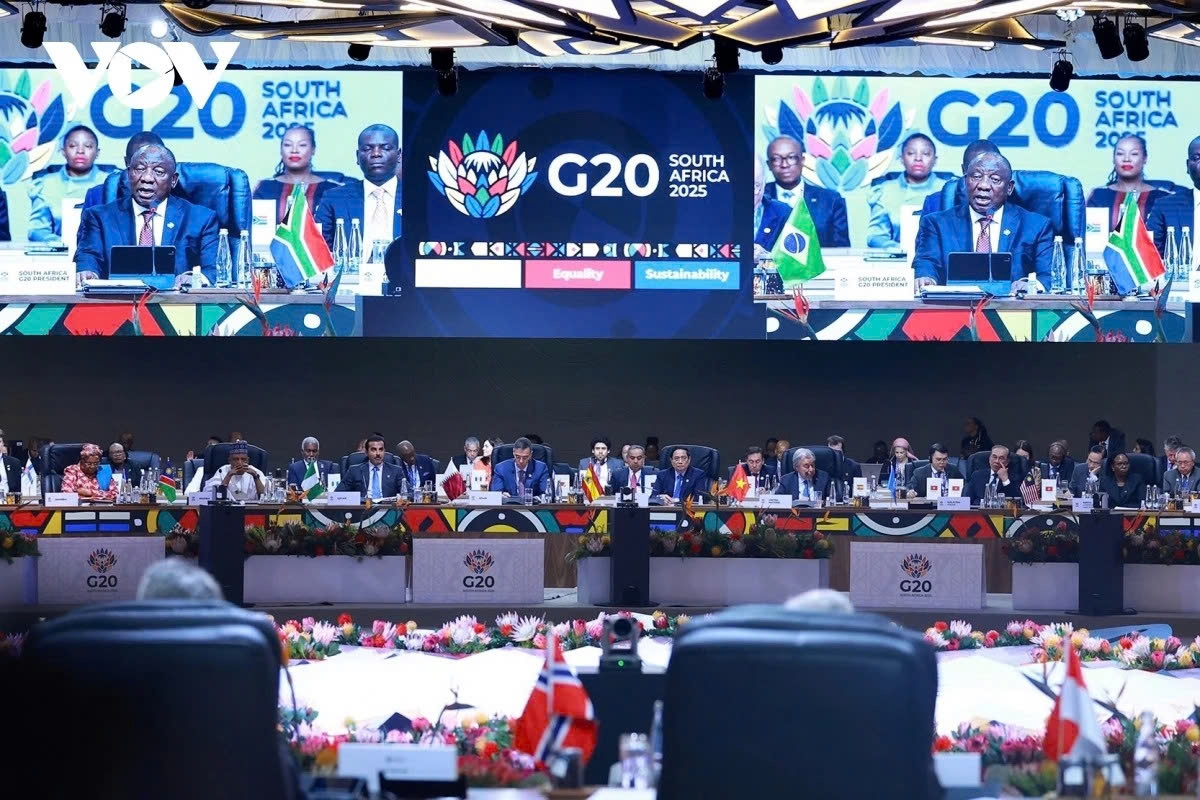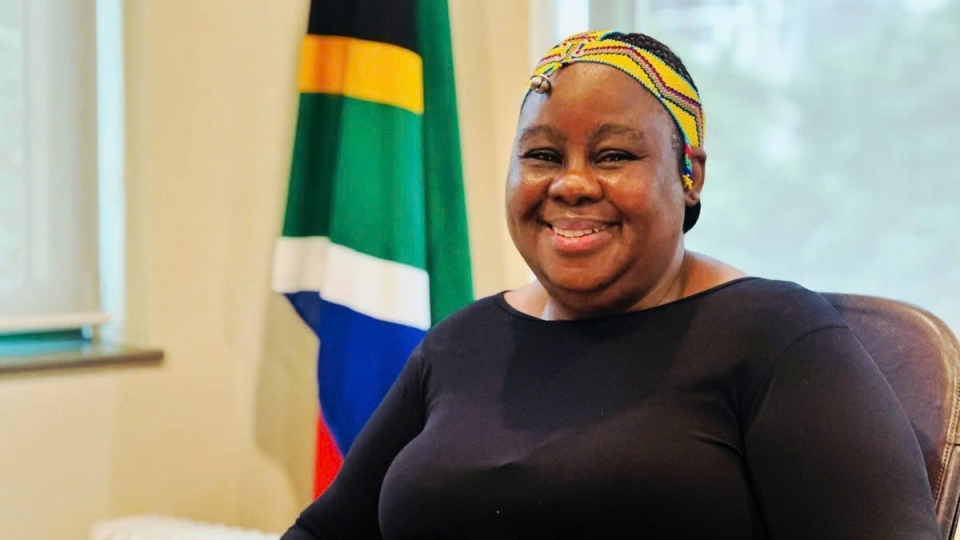Vietnam proposes sustainable growth strategies at G20 Summit
VOV.VN - Vietnamese Prime Minister Pham Minh Chinh put forward a series of strategic proposals to promote sustainable, inclusive growth, ensuring no one is left behind, at the G20 Summit in Johannesburg, South Africa, on November 20.

He emphasised that the world is experiencing profound, unprecedented global changes. In this context, global governance should aim to maintain peace, stability, and inclusive development, based on the principles of equality, mutual benefit, and respect for international law, while promoting solidarity, cooperation, and dialogue to strengthen trust.
The Prime Minister stressed that a consistent approach should be applied at the national, comprehensive, and global levels, placing people at the centre of development.
Following the motto “unity for strength – cooperation for benefits – dialogue for trust,” he proposed enhancing international stability for development, encompassing political relations, inter-state affairs, and global macroeconomics. He called on the G20 to take the lead in building mutually respectful cooperation mechanisms, seeking peaceful solutions to conflicts, coordinating policies to prevent systemic risks and respond to crises, reducing trade barriers, avoiding supply chain fragmentation, promoting debt relief initiatives, and ensuring global macroeconomic stability.
He also highlighted the need to ensure a rule-based multilateral trading system with the World Trade Organisation (WTO) at its centre, alongside a balanced and transparent global financial system.

The Vietnamese PM stressed the importance of equal access to science, technology, and finance for development. He called for close G20 cooperation without politicising science and trade, support for developing countries through fair trade policies and effective financial mechanisms, and strengthening digital transformation capacities to meet fast and sustainable growth needs.
He particularly emphasised the necessity of comprehensive WTO reforms to improve its effectiveness in the new global context.
According to the Prime Minister, global governance must be more flexible and effective to create an ecosystem for strong development in the era of digital and green transformation. He urged the G20 and multilateral mechanisms to enhance dialogue, build a framework harmonising economic, social, and environmental concerns, balance interests between present and future, between developed and developing economies, and promote cooperation on artificial intelligence, climate change, disaster and epidemic prevention.
He affirmed that Vietnam is ready to actively and equally cooperate with other countries and the international community to achieve a peaceful, prosperous, inclusive, and sustainable world where no one is left behind.
His speech received wide support and appreciation from participating countries, highlighting Vietnam’s proactive role in multilateral cooperation and global governance, aiming for a peaceful, prosperous, and inclusive world.

The November 22–23 G20 Summit, the first held in Africa, brought together leaders of 20 G20 member states, 20 invited countries, and representatives of 21 international organisations.
Leaders emphasised the need to coordinate fiscal, monetary, and trade policies to address imbalances, reduce inequality, strengthen market confidence, enhance regional connectivity, and mobilise investment resources, thereby ensuring macroeconomic stability and promoting inclusive, sustainable global growth.
The Summit reaffirmed the role of international trade as a growth driver, supported WTO reform, encouraged small and medium enterprises to participate more deeply in global value chains, and called for reforms of the international financial system to increase transparency, ensure debt sustainability, and enhance the role of multilateral development banks.
The Summit also highlighted the growing threats from natural disasters and climate change to people’s lives and economic activities. Leaders agreed on strengthening international cooperation in disaster risk management, building resilient infrastructure, early warning systems, and securing water, food, and healthcare resources, while mobilising funding for green energy transition and sustainable agriculture development.





